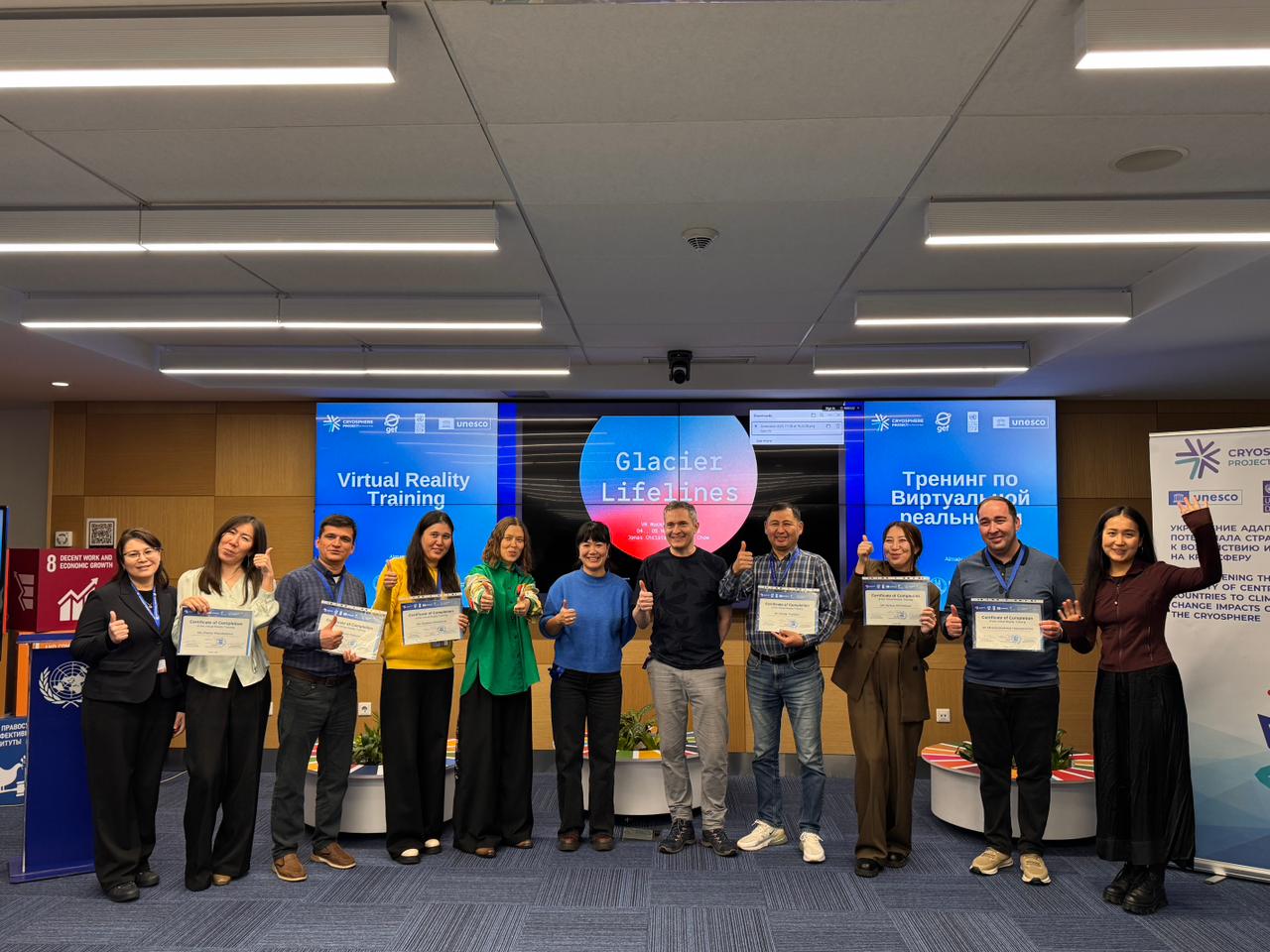On 4–5 November 2025, the UNESCO Regional Office in Almaty hosted a presentation and training on the virtual reality (VR) project Glacier Lifelines, developed by the Zurich University of the Arts (ZHdK) under the GEF–UNDP–UNESCO project “Strengthening the Resilience of Central Asian Countries by Enabling Regional Cooperation to Assess Glacio-nival Systems to Develop Integrated Methods for Sustainable Development and Adaptation to Climate Change” (Cryosphere project).
The Glacier Lifelines experience takes users on an immersive journey through the mountains of Central Asia, exploring glaciers and the impacts of climate change across four interactive chapters: irrigation, hydropower, glacier monitoring, and disaster risk reduction. It serves as an educational and awareness-raising tool that visualises scientific information and demonstrates the role of glaciers in the region’s environment and water systems.
As part of the event, visual designers Noemi Chow and Jonas Christen from ZHdK conducted a two-day training for national partners from five Central Asian universities. The participants learned to operate and maintain the VR headsets and received practical guidance on using this technology for education and outreach.
The training was attended by representatives of Al-Farabi Kazakh National University, Kyrgyz National University named after Jusup Balasagyn, the National Academy of Sciences of the Republic of Tajikistan, Turkmen Agricultural University named after S.A. Niyazov, and Mirzo Ulugbek National University of Uzbekistan.
Following the training, sets of VR headsets will be provided to these partner universities to support climate education and awareness-raising activities in their respective countries.
You can learn more about the scientific background, data, and story behind the Glacier Lifelines experience through the Knowledge Hub: https://glacier-lifelines.cryosphereca.org/.
The VR project and training were organized within the framework of the Cryosphere Project, financed by the Global Environment Facility through UNDP and executed by the UNESCO Regional Office in Almaty.

 Go Back
Go Back